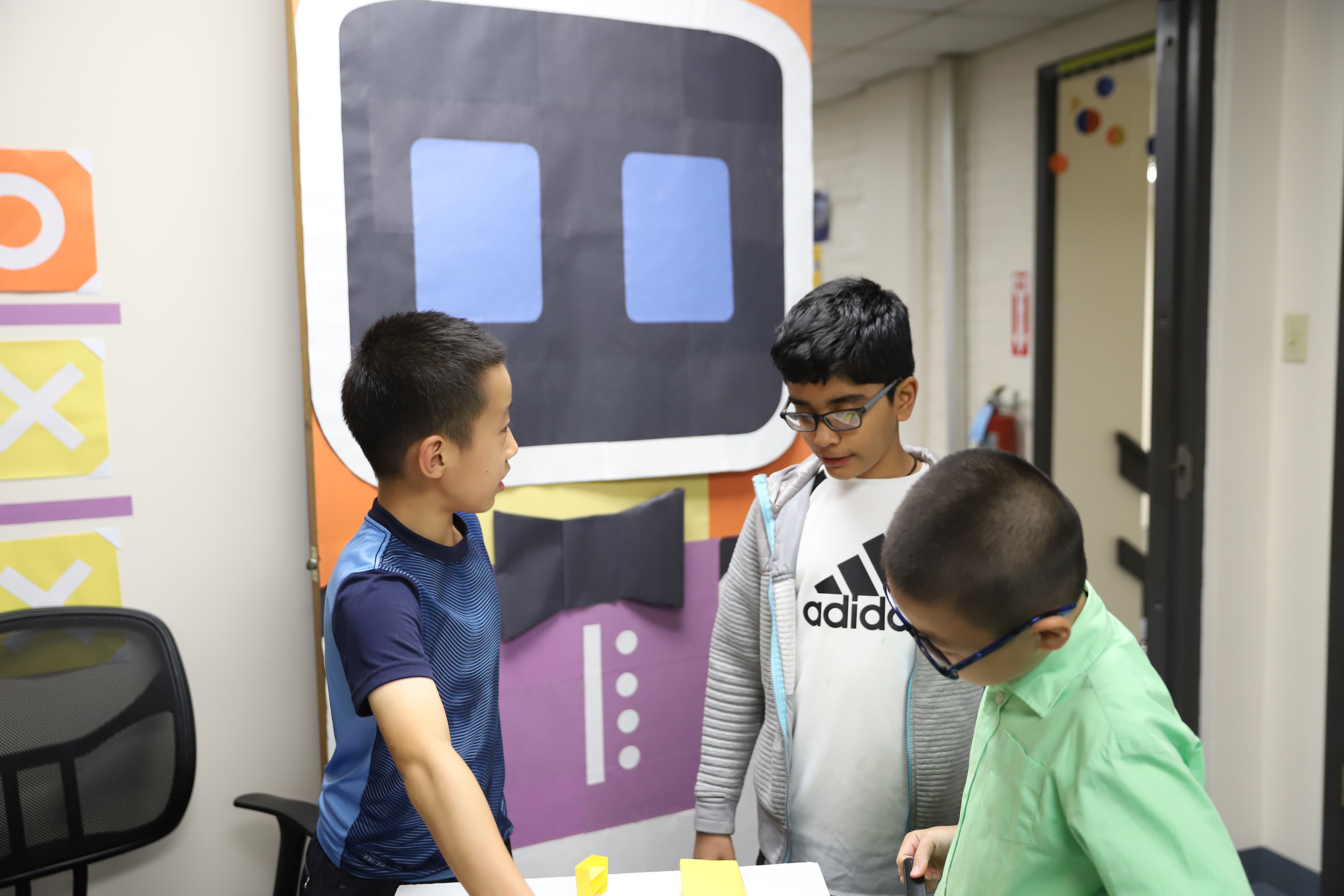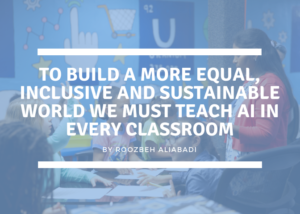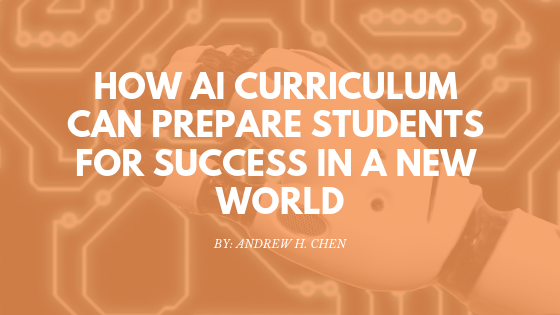Your Little Toddler is Part of the Real AI Generation
By: Roozbeh Aliabadi (ReadyAI)
When I was growing up, naturally like many others, my first words as a toddler were “mom”, “dad” and ironically “plane” – yes I still have a huge passion for flying. However, my toddler cousin first few words include: “mom”, “daddy”, “Alexa” and “Siri” and notice the last two are virtual assistants.
To my little cousin and many more toddlers around the world, Alexa is not just a virtual assistant. Alexa is the home DJ to play music on Spotify, the reminder to take the roasted chicken out of the oven – mostly for her dad, make phone calls when mom can’t find her phone, change TV channels because dad doesn’t want to get up and get the remote, or dim the light mainly because – again – dad is too ‘tired’ (lazy) to get off the couch and do it.
The bigger story is that my little cousin’s relationship with Alexa is becoming increasingly common. I don’t think parents should panic about their kids saying, ‘Alexa’ or ‘Siri. Any word we, as parents, tell repeatedly comes to an early word for little kids, look at my little cousin’s third and fourth words. Because as we probably say ‘Alexa’ or ‘Siri’ often because we start a sentence with it to play a song or check the weather forecast. So anything that generates a response is a likely candidate for an early word for our kids- no matter what it is. If you think about it, this is one of the main reasons why “mom” or “mama” is such a convenient word for kids to learn early on. After all, if a kid says it, someone, mostly moms, may come and give them a bottle – it is a pretty good bargain, too bad it doesn’t work as we grow up.
The more significant matter is the fact that today’s’ toddlers are the first real generation to grow up with everywhere AI. We are in a world in which almost any question being answered, item purchased or impulse fulfilled is possible with a voice command like; “Alexa, order toilet paper,” or “Ok, Google, remind me to buy blueberries at WholeFood this afternoon,” or “Hey Siri, do I need an umbrella today?”. Today’s cool technologies for us raises profound questions about how our kids interact with technology, with other kids and how it might shape their interactions and development as they grow up.
The fact is that more smart home devices like Echo by Amazon, Google Home, and many others will be in more and more homes worldwide. Today voice assistant platforms, like Apple Siri, Google Assistant, and many others are built into our smartphones, which gives AI even greater entrance in our everyday lives. So the adoption of both (work and life) only is going to grow.
Parents should keep in mind that like all new and fresh, new and proven technologies are taken for granted by each generation that has never lived without them, the technology’s existence will be an ordinary part of my cousin and this toddler generation.
We recognize that our children’s interest and interactions with Alexa or Google or Siri is somehow linked to their natural curiosity. Naturally, children also get excited because they see their parents initiating communications which act as a reinforcer. So we shouldn’t be surprised as our children view interaction with AI or any intelligent technology as they think about somehow personified technologies as something in between animate or inanimate.
For example, I don’t know what my little cousin thinks about Alexa. There are so many anecdotes that young children believe there’s a little person in the smart device or there’s a person on the other end of the exchange, like a telephone perhaps. But the bigger picture is that my little cousin like so many other young kids is always trying to figure out how to conceptualize these devices. Some research even suggests that small children might even understand these devices like Amazon Echo or Google Home as a piece of technology, but they also see these gadgets in psychological terms as even having emotions and feelings, as even being able to make friends or even deserving of moral treatment. I believe this sentiment will grow rapidly more pronounced as artificial intelligence grows increasingly complex and more real. Amazon has picked up on this as it is offering so many kid-friendly contents for Echo devices, like podcasts that play bedtime songs and stories. They even provide audio games like Disney’s Cars Adventure app, giving the super famous McQueen turn-by-turn directions in a race, which is cool. Jeff Bezos didn’t stop there. He also launched a fantastic and colorful Echo Dot specifically for little kids.
I do recognize the big concern parents have about reducing using technology or screen time inline with recommended age-appropriate limits. I am happy that my little cousin – at least for now – likes playing with grandma jewelry, pots, and pans, dancing and reading (pretending of course) actual books. However, many parents today view home AI devices like Echo or Google Home as one way to interact with kids without the use of screens. We don’t know if there is a consensus yet on the impact on children – positive or negative. But all in all, I believe these devices ultimately add more value to our children’s lives. However, I am not suggesting that Alexas of the world should be used to replace human interactions.
I still believe in reading real books for little kids. We need to remember something fundamental with our small children that we cannot let anything come in between the human conversation. Just look at parents reading actual books to their little kids, they break when they turn the pages and sometimes play around or go off on side stories about how they once saw an elephant at the zoo or in the jungle. This back and forth conversation with little kids is the best way they can learn as little kids. It is essential for us to remember that our interactions with devices like Amazon Echo or Siri or Google Home are not a real or authentic conversation at all, even though these devices are meant as conversation agents. Our interactions with smart devices are truly superficial, thin and lack most of the hallmarks of person-to-person conversation. Think about it this way, typically as little children are developing they honestly pick up on languages rapidly in the first few years of life. But this doesn’t just happen because small children are good at learning this skill; it also happens because grownups – typically moms – are very good at teaching it to their little kids. Alexa is indeed – at least not currently – able of conforming to a child’s speaking ability in real time. Today smart devices are nowhere near the sophistication of a human, or more specifically, the complexity of a mom or dad who can instinctively coach their children in picking up her first language.
The truth is that Alexa, Siri, Google Home, and so many other smart devices or I should say the growing feature of AI may not be the healthiest relationship – by human standards – in my little cousin’s life – along with so many small children around the world, but it’s a presence that will surely be long-lasting. We owe it to our children not only to help them understand and utilize the powerful tools of AI but also to thoughtfully weight its moral and social implications early on. As I see my little cousin interacting with her mom and dad, the human side of me reminds me that Alexa, Siri, or Google Home are not just stories about AI and machines. More important, it is a story about every one of us. The story about the next generation, with free will that allows uncertainty and peril. We must prepare ourselves and the next generation for both.




I’m impressed, I must say. Really rarely do I encounter a weblog that’s each educative and entertaining, and let me tell you, you’ve got hit the nail on the head. Your concept is excellent; the difficulty is one thing that not sufficient individuals are speaking intelligently about. I’m very pleased that I stumbled throughout this in my search for one thing referring to this.